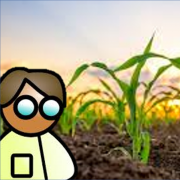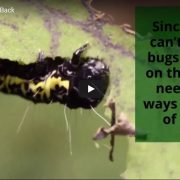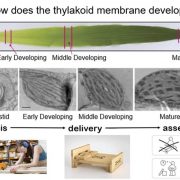Informational Interview with Jason Cavatorta, owner, Earthworks Seeds
By Mishi Vachev, Conviron Scholar
Jason Cavatorta is the owner of his own plant breeding and seed distribution company, Earthworks Seeds, in Orlando, FL. His seed is mainly marketed to home-growers and is often heirloom varieties of tomatoes, peppers, melons, and many more crops. He started his own company after working on onion development at Monsanto, and I hope his information on self-employment is interesting and/or helpful to you all!
1. What brought you to the field of plant science?
I have always enjoyed good food and I have always been interested in genetics, especially because I am an identical twin. When I started looking at graduate schools I learned about the field of plant breeding. It has been a great way to combine those interests.
2. Why did you choose to start your company?
I saw a need for vegetable varieties that were high yielding and disease resistant, but that also had good flavor and attractive appearance. I believe that most varieties available to growers currently have either good agronomic or culinary characteristics, and that there is a demand for varieties with both.
3. What are the advantages and/or disadvantages of starting your own company and being self employed?
I’d say that the biggest advantages are intellectual freedom, self management, and germplasm ownership. I really enjoy having the freedom to work on projects that interest me, even if they are not necessarily the most lucrative. I have found that I really like managing my own time and projects without having to answer to a boss. I also find plant breeding to be more rewarding now that I, as opposed to my employer, own the germplasm developed through my research efforts.
The biggest disadvantages of starting a company and being self employed are funding and not being part of a larger team with diverse skill sets.
Funding a plant breeding research program is difficult, especially getting started, because it takes years of work before any income is generated. I have had to be innovative to keep costs down while maintaining productivity. Variety development is just the first step of running a seed company and I have had to learn a lot about product development, seed production, sales, and distribution. I have been fortunate to collaborate with and receive a lot of advice from other people in the vegetable seed industry.
4. Do you have a favorite crop to work with?
I really enjoy working with tomatoes. Combining resistance to multiple diseases while maintaining good field performance and good flavor/texture is a real challenge. There are also a lot of great colors, shapes, and stripes to combine together in interesting ways.
5. Any tips for surviving graduate school?
Find a project that fits in with other ongoing research. One of the things that I have found surprising during my career is how collaborative science is, and how the best scientists typically have the widest network of collaborations.
6. Finally, what do you think are some important skills to have for a successful career in plant science?
Communication, creativity, patience! Being a good communicator is one of the most important skills that I can think of for a scientist to have because it is a necessity for good collaborations. I believe the biggest scientific breakthroughs come not from the most complex studies but rather those that apply simple steps in creative ways. Almost all research projects go through many rounds of failure before they yield results. Patience and sticking with it is one of the hardest, but most important, skills to have. Finally, I think you have to be passionate about your work. The most successful plant scientists that I know are the ones who think about their study system all the time and are world experts in their field.









